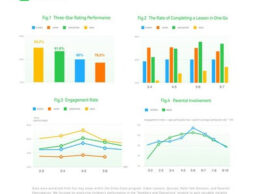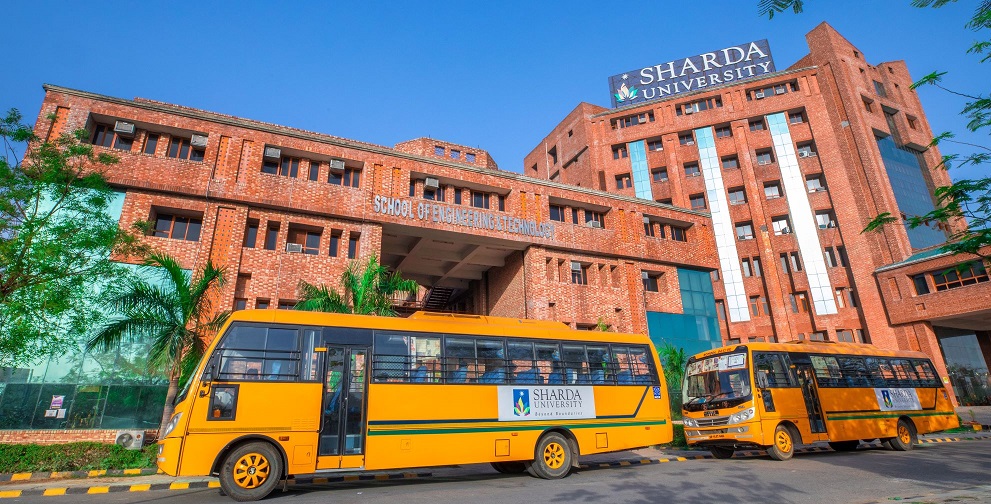RESTON – The Graduate Management Admission Council™ (GMAC™), a global association of leading graduate business schools, today released its annual 2020 Application Trends Survey. GMAC delayed the release of this year’s report, initially scheduled for publication in mid-October, to further gauge the impact of COVID-19 on application trends in regions around the world. As institutions adopted a range of admissions policies to aid candidates amid COVID-19, the report, known for assessing growth trends with an emphasis on the flow of international students crossing borders, highlights shifts in enrollment trends across Asia Pacific, Canada, Europe and the United States.
Overall, 67 percent of the more than 1,000 programs participating in this year’s survey report an increase in application volume. This includes 66% of MBA programs and 67% of business master’s programs.
Recent GMAC Application Trends reports have noted the disparity in application growth rates across competing regions. This year, growth is present in some form across nearly all geographies and program types, but this increased demand is realized in a context of increased deferments due to concerns about online learning, travel, and the ability to secure visas. Overall, the deferment rate climbed from 2% in 2019 to 6% in 2020.
“This year is like none other when observing and analyzing trends associated with applications to business school,” said Sangeet Chowfla, President and CEO at GMAC. “While the environment has certainly been challenging for schools and candidates since the outset of COVID-19, one constant is the countercyclical nature of demand for an advanced business degree. The opportunity cost of leaving a job to pursue an MBA or business master’s lessens as economies begin to regress, as a result we are now seeing more people thinking about b-school to grow or improve their career prospects.”
“This year’s Application Trends report emphasizes two very important dynamics at the center of graduate management education: a rise in global demand and the need for regional customization,” said Martin Boehm, chairperson of the GMAC Board of Directors and Dean of IE Business School in Spain. “More individuals, across nearly every region, are choosing to pursue an advanced business degree amid economic uncertainty and we are likewise seeing business schools adjusting to this demand by tailoring admissions policies to the needs of specific regions. This is, of course, exactly the type of innovative adaptability we’ve come to expect from the business school sector.”
This year’s GMAC Application Trends report provides insight into disparities identified throughout the “enrollment funnel,” a term describing the relationship between applications received, acceptance rates, offers accepted and deferments. These figures help explain the connection points that ultimately produce the total yield across programs from different regions. These trends are especially relevant in the current environment given behaviors associated with schools and candidates during a global pandemic.
While COVID-19 continues to impact every part of the world, the context behind variation in regional enrollment trends differ by locality. While other regions saw a decrease in the percentage of accepted students who ultimately enrolled (yield rate), the United States remained flat at 60%. Both Canada and Europe saw a 5% decline while Asia Pacific’s yield rate was down from 62 percent in 2019 to 51 percent in 2020. Overall, global yield dipped slightly from 62 percent in 2019 to 60 percent in 2020.
Variances in this data are largely explained by regional nuances, specifically in the Asia Pacific region which was the first to experience COVID-19 while also dealing with social unrest in Hong Kong, and differences in how programs chose to be flexible on admissions policy.
Only 35% of schools in Asia Pacific reported allowing candidates to defer entry, compared to 61% of responding schools in the US. This means US schools adopted deferral policies more extensively as compared to schools in Asia Pacific.
In Europe, nearly 80 percent of applications received were from international candidates, which were heavily weighted toward business master’s programs. In Canada, business schools saw a shift toward the domestic candidate across total applications, compared to the larger increases in international applications GMAC has observed there in previous years.
Regional Analysis
Among the programs that responded to the 2020 and 2019 surveys, the total number of applications increased for Canada (13%), Europe (24%) and the US (21%) while Asia experienced an overall decline (7%).
Asia Pacific
As noted in the report by an admissions officer from a business school in East & Southeast Asia, “The social movement in Hong Kong followed by COVID-19 disruptions impacted MBA student recruitment.”
Given the diversity of the Asia Pacific region, there were higher country-level differences relative to Canada, Europe and the United States. There are also environmental anomalies. For example, protests in Hong Kong toward the end of 2019, followed by the start of COVID-19 in mainland China in 2020 dampened application volume. Likewise, application volume for India is likely to be affected by the unprecedented national lockdown brought on by the pandemic. Given the compressed application trends reported by higher volume programs responding from Greater China and India, the growth in applications reported throughout other parts of the region were not enough to avoid an overall decline in application volume for 2020.
Canada
Most programs (84%) reported growth in applications from domestic candidates. Overall, 79% of responding programs from Canada said they experienced growth in applications received, relative to 2019. Along with Europe, Canada received nearly 40 percent of applications from Central & South Asia, and East & Southeast Asia.
Europe
Eighty percent of applications to European schools were from international candidates, far outpacing other regions and heavily skewed toward business master’s programs like master’s in management and master’s in finance. Overall, a higher proportion of European programs report growth in total applications compared to other regions. 72% of responding programs said they experienced growth in applications received, relative to 2019. Also, along with Canada, Europe received nearly 40 percent of applications from Central & South Asia, and East & Southeast Asia.
United States
Among the programs that responded to both the 2019 and 2020 surveys, the total number of domestic applications increased more than international applications. While overall applications for the US programs were up, higher-ranked schools were more likely to report growth in applications. The proportion of higher-ranked schools reporting growth in international applications was also robust, while lower ranked schools did not see this affect. However, higher deferrals for international candidates could ultimately limit the actual increase in enrollment.
More specifically, nearly 4 in 5 US full-time two-year MBA programs report growth in domestic candidates. Overall, the proportion of programs reporting growth sharply increased in 2020 over recent years. 67% of responding programs said they experienced growth in applications received, relative to 2019.
Upcoming Webinar
For more information on the findings in this year’s Application Trends report, please register for the GMAC webinar on November 17, 2020, during which a global panel of experienced admissions professionals will discuss key findings of the survey, along with their implications.








